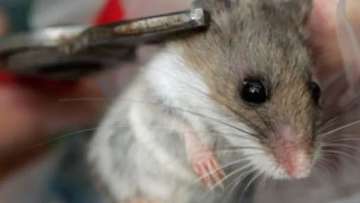In a first, researchers have discovered rare types of cells exclusive to male mice, and those that are especially found in female mice, in a region of their brains governing aggression and mating behaviours. The results of the study, published in the journal Cell, suggested that there may be differences between male and female mammalian brains at the level of individual cells.
The researchers, including those from California Institute of Technology (Caltech) in the US, noted that there are many different cell types within the brain -- such as neurons that transmit signals and glial cells that support neural functions.
"The results show that there are differences between male and female mammalian brains at the level of cellular composition as well as gene expression but that those differences are subtle, and their functional significance remains to be explained," said David Anderson, co-author of the study from Caltech.
While all of these cells contained the same set of genes, the researchers said that each type differed in how they processed those genes.
Earlier studies had shown that a specific brain sub-region called the ventrolateral subdivision of the ventromedial hypothalamus (VMHvl) contained cells involved in aggression and mating behaviours, the researchers said.
According to the researchers, a strong stimulation of these neurons in male and female mice immediately caused the animals to become aggressive, even in the absence of any threat.
However, they added that a weak stimulation caused the mice to exhibit mating behaviours.
In the current study, the researchers examined how the different genes in individual cells in the VMHvl were expressed.
They discovered 17 different types of brain cells in this tiny region alone, also revealing that some of these 17 cell types were much more abundant in male mice than in females, while others were found exclusively in females.
While previous studies had already shown that different genes were expressed in the two mouse sexes, this was the first discovery of sex-specific cell types in a mammalian brain, the researchers said.
Also Read | In a first, scientists use liquid to view life processes in 3D
Also Read | Deadly fungi causing speech defects, brain shrink found in Australia
